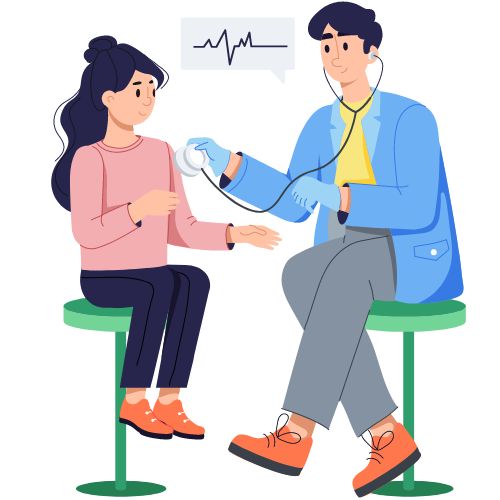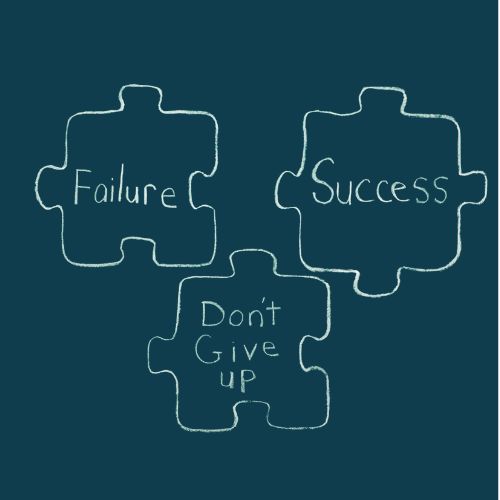
The Importance of Regular Health Checkups
When was the last time you scheduled a health checkup? If it’s been a while, you’re not alone. Many people push regular health checkups to the back burner, only seeking medical advice when something feels off. But here’s the thing—regular health checkups aren’t just for when you’re sick. They’re one of the best ways to keep you feeling well. Let’s embark on an adventurous yet insightful journey to uncover why these routine visits should be a staple in your life. Trust me, your body will thank you!
1. Prevention Is Better Than Cure
We’ve all heard the saying, but how often do we live by it? Regular health checkups are like your safety net. By catching potential issues before they become full-blown problems, you’re setting yourself up for long-term health success. These checkups allow your doctor to identify risk factors early—whether it’s elevated blood pressure, abnormal cholesterol levels, or warning signs of chronic diseases.
When we prevent, we protect. A quick visit to the doctor today could save you a mountain of worries tomorrow. Plus, early detection often means simpler, less costly treatments. Why let small, manageable issues snowball into something bigger when you can stop them in their tracks?
2. Early Detection Saves Lives
Let’s get real for a moment—certain health conditions are sneaky. They can develop without showing symptoms until it’s almost too late. Regular screenings, like mammograms, colonoscopies, or blood tests, catch diseases in their early stages. Cancer, heart disease, and diabetes, for example, can be treated far more effectively when caught early.
Don’t wait for symptoms to manifest. It’s like waiting for a fire to start before checking if the smoke detector works. By getting regular checkups, you give yourself the upper hand, and trust me, when it comes to your health, you want every advantage you can get.
3. Peace of Mind: A Gift to Your Mental Health
Let’s be honest—waiting to see a doctor only when you feel something is wrong can be a bit nerve-wracking. That looming feeling of uncertainty? Not fun. But regular checkups take the guesswork out of the equation. When you know you’re keeping tabs on your health, that constant worry can take a backseat.
It’s not just about the physical—you’ll also feel a weight lifted mentally. Worrying about health issues can create stress, anxiety, and sleepless nights. Regular checkups offer reassurance that all is well, or at the very least, provide a plan of action if something is off.
4. Strengthen Your Relationship with Your Doctor
Your doctor isn’t just someone who gives you a diagnosis and sends you on your way—they’re your health partner. Regular health checkups help foster a stronger relationship with your physician. Over time, they get to know you and your medical history better, allowing them to provide more personalized care.
Think of it as a long-term investment. The more your doctor understands you—your lifestyle, habits, and health goals—the more they can help you stay on track. Plus, it’s way easier to talk openly about any health concerns when you have a strong rapport.
5. Update Vaccinations: Stay Ahead of the Curve
Remember when vaccinations were just for kids? Surprise! They’re not just for kids anymore. Vaccinations are an essential part of staying healthy throughout your life. From flu shots to tetanus boosters, regular health checkups ensure you stay updated on all your vaccinations.
Think of it as your personal shield against illnesses. No one wants to be the one coughing and sneezing through flu season, right? Vaccinations are a simple way to keep yourself (and those around you) healthy. Plus, staying vaccinated prevents the spread of disease, making you a real-life superhero.
6. Track Your Health Progress
Health isn’t just a destination—it’s a journey. And like any journey, it’s good to check your progress along the way. Regular health checkups help track changes in your body, whether it’s weight, blood pressure, or cholesterol levels. By monitoring these key indicators, you’ll have a better understanding of where you stand health-wise.
It’s like a GPS for your well-being. If things start veering off course, you can make adjustments before they get too far out of hand. Plus, there’s something incredibly motivating about seeing progress over time. Those small wins add up to big health victories!
7. Better Management of Chronic Conditions
If you’re already living with a chronic condition—whether it’s diabetes, hypertension, or asthma—regular health checkups are even more important. They help ensure your condition is managed effectively, reducing the risk of complications. Your doctor can adjust your treatment plan as needed and provide new insights based on the latest medical advancements.
Managing chronic conditions is all about consistency. Regular visits allow your healthcare provider to assess how well your current treatment is working and tweak things if necessary. This proactive approach keeps you healthier in the long run.
8. Receive Tailored Health Advice
One size doesn’t fit all—especially when it comes to health. During regular checkups, your doctor provides personalized health advice based on your unique needs and lifestyle. Whether it’s adjusting your diet, suggesting a new exercise routine, or addressing stress levels, these tailored recommendations are like having a custom health plan.
This isn’t generic, cookie-cutter advice. It’s specific to you. And with your doctor’s expert guidance, you can make smarter choices for your health every day. It’s like having a health coach cheering you on!
9. Financial Benefits in the Long Run
Here’s the kicker—regular health checkups aren’t just good for your body; they’re good for your wallet, too. By preventing and detecting diseases early, you avoid costly medical treatments that could arise from neglect. Think of it as an investment in your health bank.
It’s easy to put off a checkup to save a few bucks today, but long-term health issues often come with hefty medical bills. Regular checkups can prevent financial strain by catching problems early when they’re easier (and cheaper) to treat. So, really, it’s a win-win situation!






